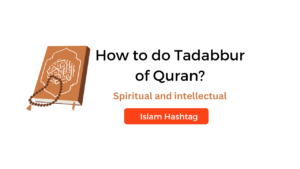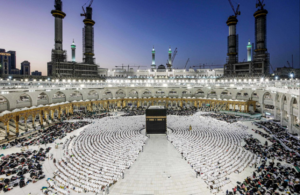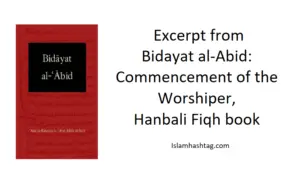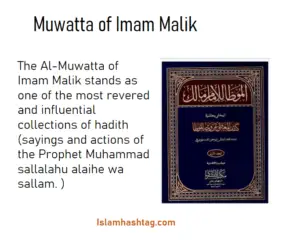Books on Nakba, the ethnic cleansing of Palestine. Essential Reads for a Deeper Understanding of Palestine’s History
Every year, on May 15th, Palestinians and supporters of a free Palestine commemorate Nakba Day, a solemn occasion marking the catastrophic events of 1948. Nakba, meaning “catastrophe” in Arabic, signifies the near-total destruction of Palestine by Zionist forces, resulting in the displacement of hundreds of thousands of Palestinians from their homes and lands.
To grasp the ongoing impact of Nakba and gain a deeper understanding of Palestine’s history, consider delving into these essential reads:
Read – Books on Islamic History
“The Ethnic Cleansing of Palestine” by Ilan Pappe
“The Ethnic Cleansing of Palestine” by Ilan Pappe – See in Amazon
Renowned Israeli historian Ilan Pappe’s groundbreaking work on the formation of the State of Israel has stirred a storm of controversy and critical acclaim alike. Dubbed “Israel’s bravest historian” by John Pilger, Pappe’s meticulous research and compelling narrative shed light on a dark chapter in history.
Detailing the period between 1947 and 1949, Pappe unveils the deliberate destruction of over 400 Palestinian villages and the forced expulsion of around a million men, women, and children from their ancestral lands. These harrowing events, often denied for decades, are exposed as nothing short of “ethnic cleansing” – a term that resonates with the stark realities faced by the Palestinian people.
Contrary to prevailing narratives, Pappe decisively debunks the myth that Palestinians left voluntarily during this period. Instead, he presents compelling archival evidence to reveal that the forcible removal of the indigenous population was a central tenet of Israel’s founding ideology from the outset.
Praised as “indispensable” for anyone seeking to understand the current crisis in the Middle East, Pappe’s work challenges readers to confront uncomfortable truths and reevaluate long-held beliefs about the region’s history.
Quotes from esteemed publications further underscore the significance of Pappe’s contribution. Described as “Israel’s bravest, most principled, most incisive historian” by John Pilger, Pappe’s scholarship offers a powerful critique of prevailing narratives. The Times Literary Supplement notes the book’s elegiac tone, which poignantly recalls the lost lives and obliterated heritage of the Palestinian people. Meanwhile, the Independent emphasizes the ongoing relevance of Pappe’s work, suggesting that lasting peace in the Middle East hinges on confronting the ghosts of 1948.
In sum, “The Ethnic Cleansing of Palestine” is not merely a historical account but a call to action – urging readers to confront the injustices of the past and advocate for a more just and equitable future for all inhabitants of the region.
“On Palestine” by Noam Chomsky and Ilan Pappe
: “On Palestine” by Ilan Pappe and Noam Chomsky, Get from amazon
In the wake of Operation Protective Edge, one of Israel’s most devastating assaults on Gaza, the urgency to stand in solidarity with Palestinians has reached unprecedented levels. “On Palestine,” authored by two prominent voices in the struggle for Palestinian liberation – Ilan Pappe and Noam Chomsky – emerges as a vital resource for understanding the challenges ahead and charting a path towards justice.
This book serves as a sequel to their acclaimed work, “Gaza in Crisis,” offering fresh insights into the ongoing plight of Palestinians and the persistent human rights abuses perpetrated by Israel. Through incisive analysis and impassioned discourse, Pappe and Chomsky delve into the complexities of the Israeli-Palestinian conflict, shedding light on the roadblocks to peace and the possibilities for change.
Noam Chomsky, renowned for his critique of US foreign policy and global politics, brings his unparalleled expertise to bear on the issue. With a prolific body of work spanning decades, including groundbreaking books like “Masters of Mankind” and “Hopes and Prospects,” Chomsky’s contributions to the discourse on Palestine are indispensable. His monthly column for the New York Times syndicate underscores his commitment to challenging injustice and advocating for human rights on a global scale.
Ilan Pappe, bestselling author of “The Ethnic Cleansing of Palestine” and “The Israel/Palestine Question,” brings his scholarly rigor and firsthand knowledge to the table. A leading voice in the quest for historical truth and justice, Pappe’s work has galvanized activists and scholars alike, prompting critical reflections on the origins of the Israeli state and the ongoing oppression of the Palestinian people.
Frank Barat, a human rights activist and author, contributes to the conversation with his insights and expertise. As the coordinator of the Russell Tribunal on Palestine and the president of the Palestine Legal Action Network, Barat’s advocacy work has been instrumental in raising awareness about corporate complicity in Israel’s occupation and the need for accountability.
Together, Pappe, Chomsky, and Barat offer a compelling narrative that challenges prevailing narratives and calls for solidarity with the Palestinian struggle for freedom and justice. “On Palestine” is not just a book – it’s a call to action, urging readers to confront injustice, amplify Palestinian voices, and work towards a future where equality, dignity, and human rights prevail for all.
“The Hundred Years’ War on Palestine: A History of Settler Colonial Conquest and Resistance” by Rashid Khalidi
“The Hundred Years’ War on Palestine: A History of Settler Colonial Conquest and Resistance” by Rashid Khalidi bestseller in Amazon
In “The Hundred Years’ War on Palestine,” esteemed historian Rashid Khalidi delivers a groundbreaking narrative that traces the tumultuous history of Palestine through the lens of colonial conquest and resistance. Drawing on a wealth of archival materials and familial accounts, Khalidi offers a sweeping account of the conflict from an explicitly Palestinian perspective.
The book opens with a poignant letter penned by Yusuf Diya al-Khalidi, mayor of Jerusalem, to Theodore Herzl in 1899, forewarning of the perils of displacing Palestine’s indigenous population in favor of establishing a Jewish national home. This letter serves as a powerful prelude to Khalidi’s exploration of a century-long colonial war waged against the Palestinian people by the Zionist movement and later by Israel, with backing from influential global powers such as Britain and the United States.
Through meticulous research and insightful analysis, Khalidi unveils the key episodes in this protracted conflict, from the infamous 1917 Balfour Declaration to the cataclysmic events of 1948, which resulted in the destruction of Palestine. He sheds light on pivotal moments such as Israel’s invasion of Lebanon in 1982 and the ongoing, fruitless peace process that has characterized much of the modern era.
Unlike conventional narratives that often depict the conflict as a tragic clash between two competing nationalisms, Khalidi’s work offers a nuanced perspective that underscores the colonial dimensions of the struggle. It challenges prevailing interpretations and reframes the discourse, emphasizing the relentless campaign of colonial violence perpetrated against Palestinians and the enduring legacy of dispossession and resistance.
“The Hundred Years’ War on Palestine” is not merely a chronicle of victimization; it is a testament to resilience and perseverance in the face of adversity. Khalidi neither absolves Palestinian leaders of their mistakes nor overlooks the emergence of national movements on both sides. Instead, he provides an illuminating new framework for understanding a conflict that continues to shape the geopolitical landscape of the Middle East.
Original, authoritative, and profoundly important, Khalidi’s work is a landmark contribution to the historiography of Palestine. It challenges readers to confront uncomfortable truths and reevaluate their understanding of a complex and enduring conflict that demands urgent attention and resolution.
“Legacy of Empire: Britain, Zionism and the Creation of Israel” by Gardner Thompson
Gardner Thompson’s compelling exploration delves into Britain’s pivotal role in facilitating the establishment of a Zionist state in Palestine. By analyzing Britain’s colonial policies and diplomatic maneuvers, Thompson highlights the complicity of global powers in the dispossession of the Palestinian people and the perpetuation of injustice in the region.
“Voices of the Nakba: A Living History of Palestine” by Diana Allan and Rosemary Sayigh
“Voices of the Nakba: A Living History of Palestine” by Diana Allan and Rosemary Sayigh, see in Amazon
Winner of the English PEN Award 2021, “Voices of the Nakba” unveils the harrowing legacy of one of the darkest chapters in Palestinian history. The Nakba, meaning ‘disaster’ or ‘catastrophe,’ reverberates through the collective memory of Palestinians, serving as a stark reminder of the violence and upheaval inflicted upon them during the 1948 war.
Amidst the chaos of war, more than 750,000 Palestinian Arabs were forcibly displaced from their homes by Zionist militias, leaving behind a trail of devastation and despair. Through a meticulous collection of testimonies from first-generation Palestinian refugees in Lebanon, “Voices of the Nakba” provides a poignant and powerful portrayal of this pivotal moment in the modern Middle East.
These firsthand accounts, accompanied by commentary from esteemed scholars of Palestine and the Middle East, offer a compelling narrative that transcends mere historical documentation. They provide a window into the lived experiences of those who endured the trauma of displacement, shedding light on the multifaceted dimensions of Palestinian identity, resilience, and resistance.
As readers embark on this immersive journey through Palestinian history, politics, and culture, they are confronted with the plurality and complexity of Palestinian popular memory. Through the voices of those directly affected by the Nakba, “Voices of the Nakba” challenges conventional narratives and invites readers to bear witness to the enduring spirit of a people determined to reclaim their narrative on their own terms.
“Voices of the Nakba” is more than a historical record; it is a testament to the resilience of the human spirit and a rallying cry for justice and recognition. In amplifying these voices, Diana Allan and Rosemary Sayigh have crafted a seminal work that honors the lived experiences of Palestinians and underscores the imperative of acknowledging and addressing the ongoing plight of the Palestinian people.
Conclusion
Engaging with these seminal works not only deepens our understanding of Nakba but also underscores the urgent need for justice, recognition, and solidarity with the Palestinian people. As we commemorate Nakba Day and honor the memories of those affected, let us commit ourselves to advocating for a future where peace, dignity, and equality prevail in Palestine and beyond.
Consider Pinning this article or sharing with friends who may benefit.

Discover more from Islam Hashtag
Subscribe to get the latest posts sent to your email.









